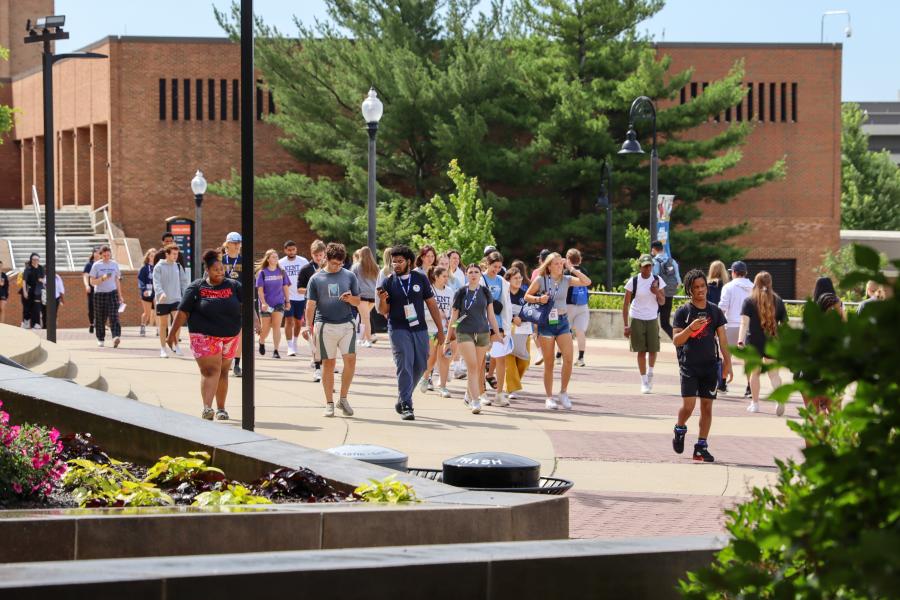Join us for an informative virtual event where Professor Angela Neal-Barnett, Ph.D., will do a deep dive into burnout and how to overcome it.

Hi! My name is Ethan Boicey. I’m a senior at Kent State University, majoring in Mechanical Engineering Technology currently set to graduate in Spring 2026. I’ve had an incredible start to my career, getting to work for incredible companies, with incredible people, all over the country. Most recently, I interned at NASA in Houston, Texas, General Motors in Parma, Ohio and I am excited to announce I will be traveling to Redmond, Washington to intern with SpaceX on the Starlink engineering team! I have found my passions for space, engineering and the pursuit of excellence at none other than ...

University preservice teacher literacy coursework received perfect score, no mandatory recommendationsDec. 16, 2025 – The Ohio Department of Higher Education Science of Reading Audit of educator preparation programs found that Kent State University’s preservice teacher literacy coursework was deemed “in alignment” with a score of 100% and no mandatory recommendations for improvement. Additionally, there is evidence of full compliance with Ohio’s definition of the science of reading as codified in the Ohio Revised Code.“This finding affirms Kent State’s storied history as one of the country’s t...
Join us at Kent State University on February 8 for a special day as we take a deep dive into Piano studies for talented piano students between the ages of 12 and 17! Participate in this intensive day of masterclass, mini group lessons, seminar on practice and audition strategies; in addition, there will be ensemble playing and an opportunity to perform in a Kent State Piano Division concert, "Midwinter Dreams: A Tchaikovsky and Crumb Celebration" at 5 p.m..
Conflict Resolution and Communication | Summer 2026
- ONLINE; June 15 - July 12
- 2 graduate credits: CES 50093, CRN # 12800
Personal Development and Leadership | Summer 2026
- ONLINE; June 29 - August 9
- 3 undergraduate credits: SPED 40093, CRN # 12844
- 3 graduate credits: SPED 50093, CRN # 12845
Mental Health and Wellbeing | Summer 2026
Addressing Anxiety in the Classroom
- ONLINE; June 29 - August 9
- 2 undergraduate credits: SPED 40093, CRN # 12842
- 2 graduate credits: SPED 50093, CRN # 12843
Controlling Stress: Creative Ways to Make Stress Work for You
Engaging and Empowering Learners | Summer 2026
Addressing Anxiety in the Classroom
- ONLINE; June 29 - August 9
- 2 undergraduate credits: SPED 40093, CRN # 12842
- 2 graduate credits: SPED 50093, CRN # 12843
Classroom Management: Introduction to Positive Behavior Supports for Classrooms and Schools
Technology and Tools | Summer 2026
Adobe Acrobat PDF Basics: An Overview of PDF Files as a Tool
- ONLINE; July 13 - August 7
- 2 undergraduate credits: ETEC 40093, CRN # 12826
- 2 graduate credits: ETEC 50093, CRN # 12827